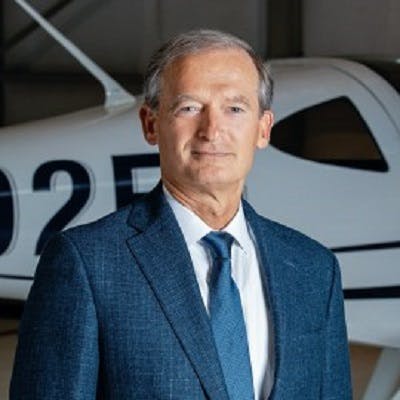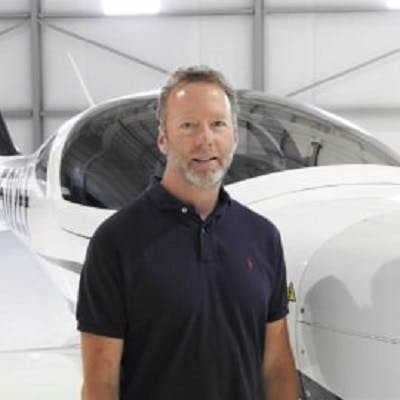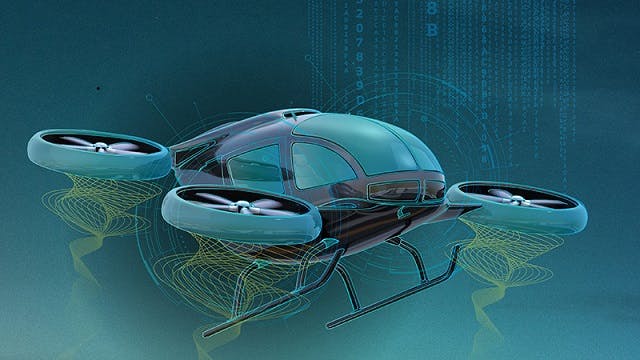In this webinar, you will learn how a fly-it-before-you-build-it approach can help aerospace manufacturers and their suppliers deploy a comprehensive digital twin for aircraft performance engineering.
Digitalization for multi-disciplinary collaboration is the future of aircraft performance engineering. This methodology facilitates behavioral verification and validation by using realistic simulation to effectively tackle design complexities and remove silos between disciplines and applications. You will see how this approach to aircraft systems engineering results in shorter development time and reduced risk.
Aircraft systems engineering for program execution excellence
Learn how to:
- Optimize the physical behavior of all elements of future aircraft: structural development, fluid and heat transfer, systems design, thermal management, cabin comfort, electromagnetics and integration, verification, certification testing and more.
- Implement a scalable modeling approach, from component level to integrated aircraft and from low- to high-fidelity representations.
- Adopt a digital twin approach to support all development phases – from early concept, trade-off studies and detailed design to the verification and certification.
- Manage all digital models in support of Agile product development, model-based systems engineering and verification processes in the context of certification.
Benefits of digitalization in aerospace
You can use digital transformation to gain competitive advantage. Benefits of digitalization in aerospace include decision confidence, enabling insights, speed and agility and full traceability and alignment. With a digital twin that covers critical mission domains, you gain program execution excellence, building insights from performance to drive continuous improvement.
When you use a fly-it-before-you-build-it approach to aircraft performance engineering, you leverage digitalization in aerospace to:
- Model the complexity – Leverage expertise in your development process
- Explore the possibilities – Bring together simulation and testing
- Stay integrated – Remove silos between departments and stakeholders
- Go faster – Benefit from the digital twin tuned to aircraft design challenges
Advanced air mobility challenges.
As we move from traditional air travel to advanced air mobility, we need to overcome a few challenges and risks. Agile development processes are being embraced to contend with changes and uncertainties related to:
- Distributed electric propulsion
- Power and energy density
- Thermal and energy management
- Innovative airframes
We must consider things like automated flight operations, the acceptance of communities, end-to-end passenger experiences and, of course, verification and certification. We need to bring together the different disciplines in a model-based systems engineering approach. This allows us to make aircraft architectural choices based on the virtual integrated aircraft that fits into an MBSE process.
Aircraft systems design use case: Bye Aerospace – digital twin of electric eFlyer aircraft
Electrifying the propulsion system is among the most critical priorities for the aerospace industry. However, the power density that this requires generates thermal concerns, electrical system integration challenges and increased interactions between various physics. To handle this complexity, aircraft manufacturers need to upgrade their development processes from a static, document-based engineering approach to a dynamic model-based engineering approach.
Learn from Bye Aerospace how to:
- Set up your aircraft design processes and tools with certification in mind
- Run multi-disciplinary optimization
- Enable last-minute changes in the context of Agile development processes
Meet the speakers

George Bye
CEO

Jim Forrester
Director of Design Engineering

Jens de Boer
Simcenter Solution Manager for Aerospace
